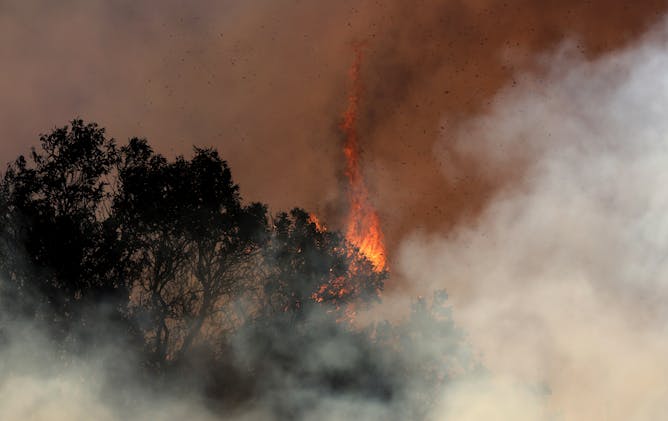|
|
|
|
It must be back-to-school season. The shops are full of displays for sensible shoes and lunchboxes, my kids are starting to complain about being bored, and letters are arriving from schools asking parents to pay fees.
To be clear, these letters aren’t just from private schools. Public school parents are also being asked for payments that can run to many hundreds of dollars per child. These fees go towards a range of items and could include stationery, excursions or other resources. While payments are voluntary, there can be a lot of pressure on families to pay, Emma Rowe writes.
These voluntary payments can differ wildly between advantaged and disadvantaged areas, effectively giving public schools in wealthier areas greater access to funds.
Rowe acknowledges some parents may be happy to pay these fees, but says the bigger issue is that public schools should be accessible to everyone and resourced fairly and properly, adding: “At the moment, our funding system is not meeting the bare minimum agreed targets, and therefore it is unsurprising costs are being passed to parents.”
|

|
Judith Ireland
Education Editor
|
|

Emma Rowe, Deakin University
As Australian families prepare for term 1, many will receive letters from their public schools asking them to pay fees.
|
Best reads this week
|

Benjamin T. Jones, CQUniversity Australia
Outgoing United States president Joe Biden has warned ‘an oligarchy is taking shape in America’. What is an oligarchy? And is America becoming one?
|

Clive Schofield, University of Wollongong
Renaming it the Gulf of America would apply only in the US. And the long global history of disputed place names suggests it could be a brief experiment anyway.
|

Julia Richardson, Curtin University
The message is clear: the push to get workers back into the office is being incorporated into US government policy. Here’s what could be lost.
|

Marta Yebra, Australian National University; Iain Guilliard, Australian National University; Nicholas Wilson, Australian National University; Robert Mahony, Australian National University
As bushfire seasons grow longer and more intense, Australia needs new weapons in its firefighting arsenal.
|

Lawrence Bamblett, Australian National University; Anna Clark, University of Technology Sydney; Benjamin T. Jones, CQUniversity Australia; Clare Wright, La Trobe University; Frank Bongiorno, Australian National University; Gregory Melleuish, University of Wollongong; Jane Lydon, The University of Western Australia; Thomas H. Ford, La Trobe University; Timothy Michael Rowse, Western Sydney University; Tom Griffiths, Australian National University; Yves Rees, La Trobe University
A barbecue, a protest … or a good book? We asked some of our leading historians to choose an illuminating Australia Day read.
|

Mandy Paul, University of Adelaide; Rochelle Schoff, La Trobe University
In 1939, Adelaide endured 13 straight days of extreme heat – residents’ diaries from the time reveal old-fashioned cooling strategies.
|
TC Weekly podcast
|

Gemma Ware, The Conversation
Paleoecologist Emily Lindsey on the wildfires that led to mass extinction during California’s Ice Age. Listen to The Conversation Weekly.
|
Our most-read article this week
|

Judy Lundy, Edith Cowan University; Uma Jogulu, Edith Cowan University
Australia has already made significant progress on diversity, equity and inclusion (DEI). Organisations should resist the backlash and continue to focus on making workplaces safer and more respectful.
|
In case you missed this week's big stories
|
-
Joanne Orlando, Western Sydney University
After briefly ‘going dark’, TikTok has returned to the screens of users in the US. But the situation remains slippery.
-
Dominique Falla, Griffith University
This South Korean boy band is the first act ever to debut at No.1 on the Billboard 200 chart with its first six entries. It has a very devoted fanbase to thank.
-
Christian Moro, Bond University; Charlotte Phelps, Bond University
According to recent estimates from the World Health Organization, more than one in five people aged 15–49 live with genital herpes.
-
Finley Watson, La Trobe University
The ‘fake podcast’ format isn’t just being used to spread misinformation. Many legitimate companies are also using it to sell their products and services.
-
Rebekkah Markey-Towler, The University of Melbourne
With the US out of the tent, the rest of the world can get on with climate action without Trump’s corrosive influence.
-
Matthew Ricketson, Deakin University; Andrew Dodd, The University of Melbourne
While few people have received an apology from a Murdoch-owned publication, Prince Harry now has. But if you think this is the end of the long legal saga, you may well be wrong.
-
Bioantika, The University of Queensland; Hernandi Albeto Octaviano, The University of Queensland
The demand for sand is soaring in places like Singapore. But extracting sand from the sea is destructive. It’s worth looking at alternatives
-
Alice Grundy, Australian National University
Mergers within the Australian publishing industry have significant implications for the literary culture.
-
David Lowe, Deakin University; Andrew Singleton, Deakin University; Joanna Cruickshank, Deakin University
A new survey shows a solidifying of views on the Australia Day date across the country, but young people remain in favour of changing it.
|
|
| |
|
|
|
|
| |
| |

|
| |
| |
| |
Featured Events, Courses & Podcasts
|
View all
|
|
13 February 2025
•
Melbourne
|

|
24 February 2025
•
Canberra
|

|
|
|

|
11 February - 4 December 2025
•
|

|
|
|
|
| |
| |
| |
| |
| |
|
|
|
|
|
|
|